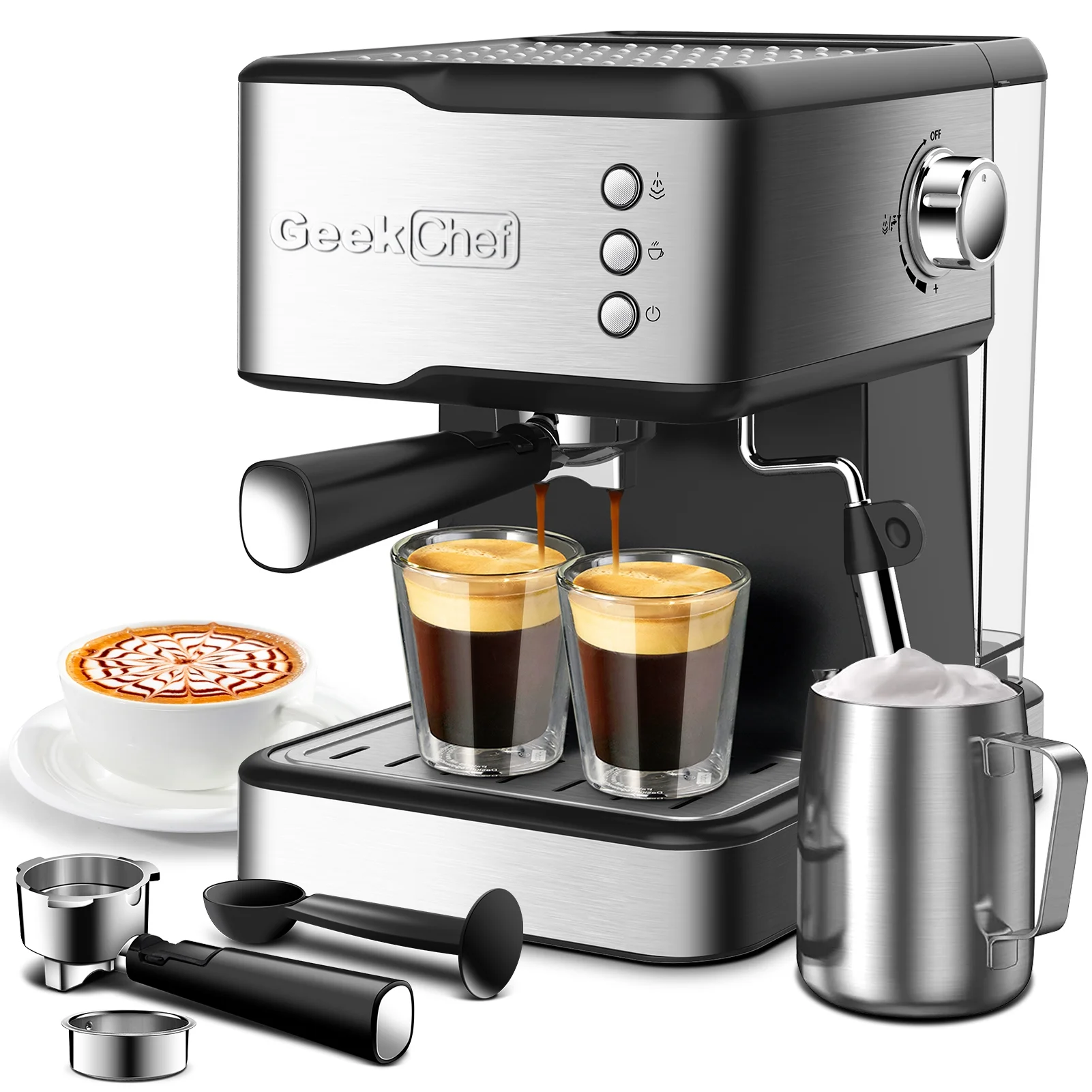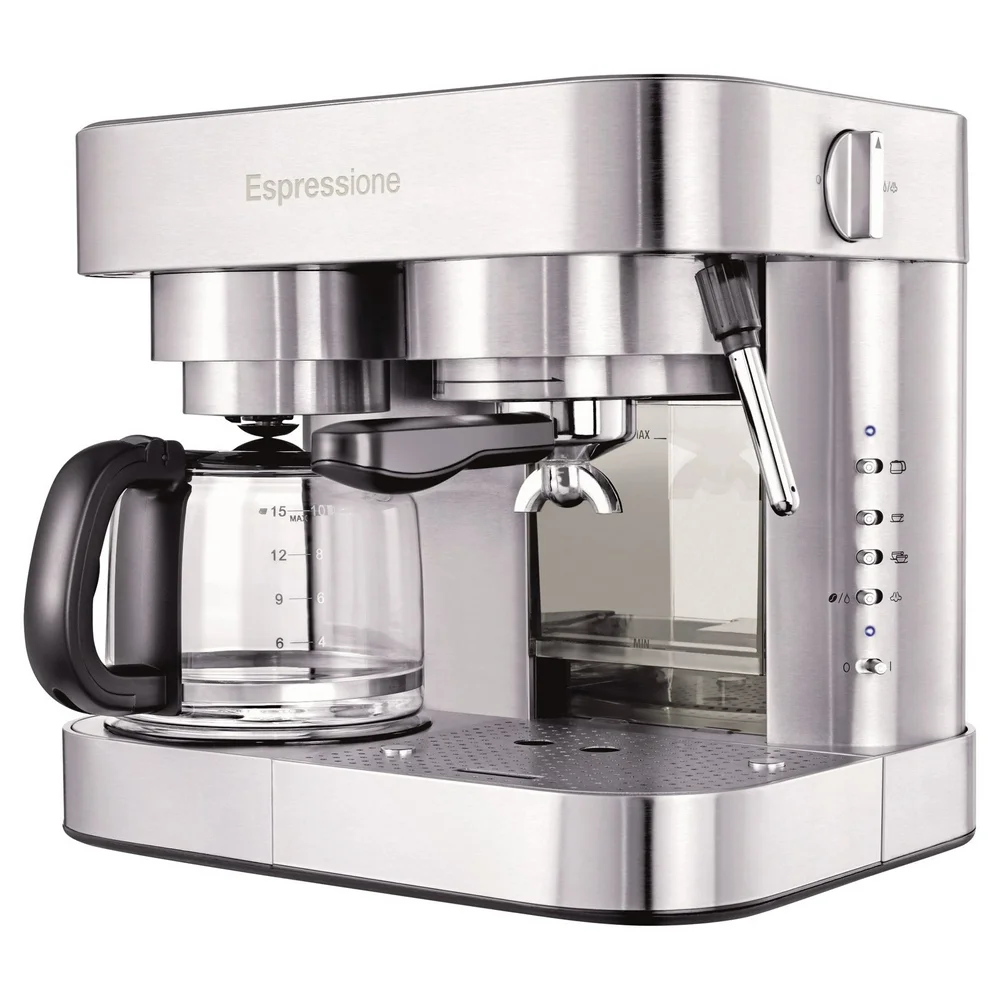The Importance of Descaling Your Coffee Machine
Descale your coffee machine for several good reasons. First, it keeps the machine running smoothly. Hard water can lead to mineral buildup. This buildup clogs the machine’s inner workings. If ignored, it can cause damage or reduced performance. Regular descaling helps the machine last longer.

Prevents Flavor Alteration: Limescale can change your coffee’s taste. Built-up minerals interfere with water flow. This affects how water extracts flavors from coffee grounds.
Ensures Consistent Temperature: Buildup can insulate heating elements. This prevents proper water heating and alters brewing temperature.
Avoids Expensive Repairs: Ignoring limescale leads to costly breakdowns. Prevent issues by descaling regularly.
Maintains Efficiency: A clean coffee machine works as designed. Descaling contributes to efficient coffee making.
In summary, descaling is key for a functional and efficient coffee machine. It preserves your coffee’s quality and the machine’s lifespan.
Signs It’s Time to Descale Your Coffee Machine
Knowing when to descale your coffee machine is crucial. Don’t wait for visible signs of trouble. Here’s how to tell if it’s time:
Mineral Deposits: White, chalky residue in your machine or pot hints at buildup.
Slow Brewing: If water flows sluggishly, it’s likely due to clogging minerals.
Odd Noises: Gurgling sounds or strange noises during brewing can signal clogs.
Inconsistent Temperatures: Coffee that’s too cool or unevenly heated may mean scale insulation.
Off-Tasting Coffee: A clear sign of limescale is a bitter or stale taste.
Machine Alerts: Some models flash lights or send alerts for descaling needs.
Monitor these indicators to maintain your machine’s performance and coffee quality. Time to descale? Do it soon to prevent further issues.
Choosing the Right Descaling Agent
Selecting an effective descaling agent is fundamental for cleaning your coffee machine. The right descaler dissolves mineral build-up without harming the machine’s internals. Let’s explore the options:
- Vinegar: A common household item, white vinegar can help with descaling. It’s cheap and readily available. However, its strong odor may linger, and it’s not recommended for all machine types.
- Citric Acid: This natural acid is another DIY option. Mix it with water to create a descaling solution. It’s gentle and less odorous than vinegar, but you must get the concentration right.
- Commercial Descalers: These are formulated specifically for descaling coffee machines. They tend to be the safest and most effective choice. Look for non-toxic, natural varieties for peace of mind.
- Manufacturer’s Solution: Some brands offer their own descaler. It guarantees compatibility with your coffee machine but can be more expensive.
Before using any descaling agent, check your coffee machine’s manual. It will guide you on the recommended descaler for your model. Using the wrong type can damage your machine or void the warranty. Always follow manufacturer guidelines for the best results.
 Step-by-Step Guide to Descaling Your Coffee Machine
Step-by-Step Guide to Descaling Your Coffee Machine
Descaling your coffee machine is easier than you might think. Just follow these steps for a fresh-tasting brew:
- Unplug the Machine: Safety first! Always unplug your coffee machine before starting the descaling process.
- Prepare the Solution: Mix the descaling agent with water as per the instructions. Commercial descalers often come with clear guidelines, or you may use equal parts water and white vinegar.
- Fill the Reservoir: Pour your descaling solution into the water reservoir of your coffee machine.
- Run the Cycle: Start the descale cycle if your machine has one. If not, just brew the solution through the machine as you would with coffee.
- Let It Sit: Allow the solution to work. For tough buildup, pause the machine halfway for 30 minutes.
- Flush the System: After descaling, run fresh water through the machine multiple times. This removes any leftover solution.
- Clean Removable Parts: Wash the carafe, filter basket, and other removable parts with soapy water.
- Wipe the Machine: With a damp cloth, clean the exterior and any non-removable elements.
Perform descaling regularly, based on your water hardness and coffee machine use. By keeping to these steps, you’ll extend your coffee machine’s life and enjoy better tasting coffee. Always consult your machine’s manual to ensure you’re using the recommended descaling procedure and agents. This protects your coffee machine and warranty. Avoid common mistakes, like using the wrong ratio of descaling agent to water, to ensure a successful clean.
How Often Should You Descale Your Machine?
The frequency of descaling depends on several factors. These include the hardness of your water, how frequently you use your coffee machine, and the manufacturer’s instructions. Here’s a simple guideline:
- Hard Water Areas: If you live in an area with hard water, it’s common to descale monthly.
- Regular Use: Heavy use requires more frequent descaling. Aim for every 1-2 months.
- Less Frequent Use: For those who use their machine less, descaling every 3-6 months is okay.
- Manufacturer’s Schedule: Always check the coffee machine’s manual. Follow the recommended descaling schedule.
- Alerts and Indicators: Some machines tell you when to descale. Watch for lights or messages.
Sticking to these intervals helps keep your coffee machine in top shape. It ensures good tasting coffee and efficient machine performance.
The Benefits of Regular Descaling
Regular descaling has many advantages for coffee machine users. Here’s why it’s beneficial to descale often:
- Extended Machine Life: Machines last longer with regular care. Descaling prevents damage inside.
- Improved Coffee Taste: Fresh water flows better after descaling. It makes coffee taste great.
- Saved Money: Avoid repair costs. Regular maintenance like descaling keeps costs low.
- Efficient Performance: Coffee machines work best without mineral buildup. Descaling ensures top efficiency.
- Energy Savings: Scale makes heating water harder. Descaling reduces energy needed to brew.
By descaling your machine frequently, you’ll reap these benefits. Your coffee will taste consistent and your machine will operate efficiently, saving you time and money in the long run.
Common Mistakes to Avoid During Descaling
When you descale your coffee machine, avoid common errors for the best results. Here’s what to steer clear of:
- Skipping the Manual: Always read your machine’s guide. It has vital info on how to descale properly.
- Wrong Solution Ratio: Follow the descaler mix instructions. Using too much or too little can be ineffective or harmful.
- Ignoring Water Hardness: The water you use impacts descaling. Know your water type and descale accordingly.
- Leaving Solution Too Long: Don’t leave the descaling solution in the machine for longer than advised. It might cause damage.
- Incomplete Rinsing: Run enough cycles with fresh water. This removes all traces of the descaling solution.
- Using Unfit Descalers: Homemade or the wrong commercial descalers can ruin your machine. Use the recommended type.
- Neglecting Regular Maintenance: Descaling is just one part. Clean and maintain your machine regularly for optimum function.
- Forgetting Parts: Disassemble and clean all removable parts. They can harbor buildups too.
Make these part of your routine when you learn how to descale coffee machine. This prevents issues and maintains your machine’s health.
 Tips for Preventing Limescale Buildup
Tips for Preventing Limescale Buildup
Keeping your coffee machine free of limescale is not just about regular descaling. Prevention is also key. Here’s how to minimize the buildup:
- Use Filtered Water: Tap water can have lots of minerals that cause scale. Filtered water has fewer, so it’s better for your machine.
- Install a Water Softener: If you live in a hard water area, a softener can help. It reduces mineral content before it reaches your machine.
- Regular Maintenance: Clean your machine often. Follow your manufacturer’s cleaning schedule. This way, limescale won’t get a chance to build up.
- Descale on Time: Don’t wait for signs of buildup. Descaling at the right times keeps the buildup low. Check your machine’s manual for a schedule.
- Monitor Water Hardness: Water hardness can change. Test your water occasionally to stay updated. If it gets harder, descale more often.
By following these tips, you’ll fight limescale before it starts. This keeps your coffee machine running well and your coffee tasting its best.
